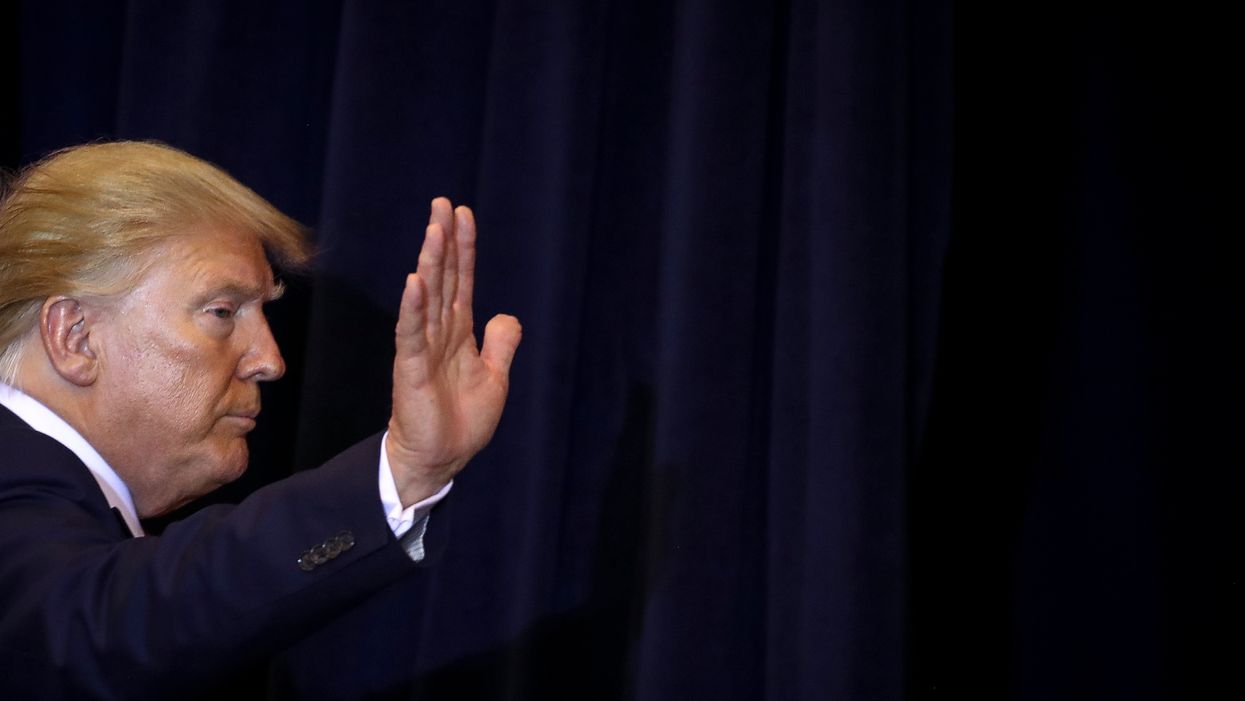Etelson is a member of Better Angels, a citizens group fighting political polarization, and the author of "Beyond Contempt: How Liberals Can Communicate Across the Great Divide."
In my one-year retrospective last month on the Supreme Court confirmation hearings, I observed that partisan bias played a huge role in whether one believed nominee Brett Kavanaugh or Christine Blasey Ford. Extreme partisan disparity is evident once again in public opinion polls concerning impeachment.
Eighty-seven percent of Democrats and 23 percent of Republicans approve of Congress launching an impeachment inquiry, according to a September 26-27 YouGov poll commissioned by CBS News. Likewise, when asked whether Trump's handling of Ukraine is "typical — a thing most presidents do" or "unusual — something few have done," 71 percent of Republicans but just 15 percent of Democrats say it is typical.
What's going on here? Do Republicans and Democrats have vastly divergent conceptions of what constitutes proper and improper presidential conduct? Do they have different recollections of the behavior of past presidents? Or are most people basing their opinion on whether or not they want President Trump to serve out his term and reverse engineering their reasoning accordingly? I suspect the latter.
As an ardent leftist, when I initially heard about the whistleblower complaint, my first thought was, "Hurray, they finally got him!" My second thought was, "Okay, now, what exactly did he do and is there proof?" This is backwards. My first question should have been, "What did he do?" My second question should have been, "Did his actions violate any laws or democratic norms or otherwise fall short of my expectations for presidential integrity?" Then and only then should I have started breaking out the champagne.
Nobel Prize-winning behavioral economist Daniel Kahneman developed the notion of "thinking fast and slow." The fast brain makes a snap judgment based on emotion and instinct. In its haste, it's prone to making cognitive errors such as confirmation bias. The slow brain mulls the matter over using reason and logic and may reach a different conclusion.
Once confirmation bias takes hold, it's hard to hit the reset button, but I think we should all try our utmost to do so. I'm asking my slow brain, "If it were Hillary Clinton or Barack Obama who did these things and a GOP-controlled House were calling for an impeachment inquiry, would I approve or not?"
I encourage Americans of all political persuasions to ask our slow brains that question and to reflect on our expectations for how sitting presidents conduct themselves and what role we play in holding them accountable to the standards we set for them.
Impeachment shouldn't be a referendum on Trump's ideology or likability, nor on the ideology or likability of Joe Biden or any of the other Democratic presidential candidates. The issue at hand is whether Trump committed crimes grave enough to warrant his removal from office. A country that cannot make such an assessment is a country that will not remain a democracy for much longer.



















Trump & Hegseth gave Mark Kelly a huge 2028 gift